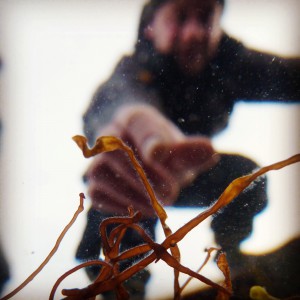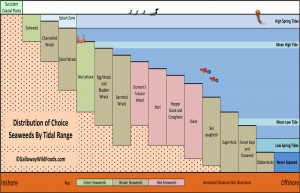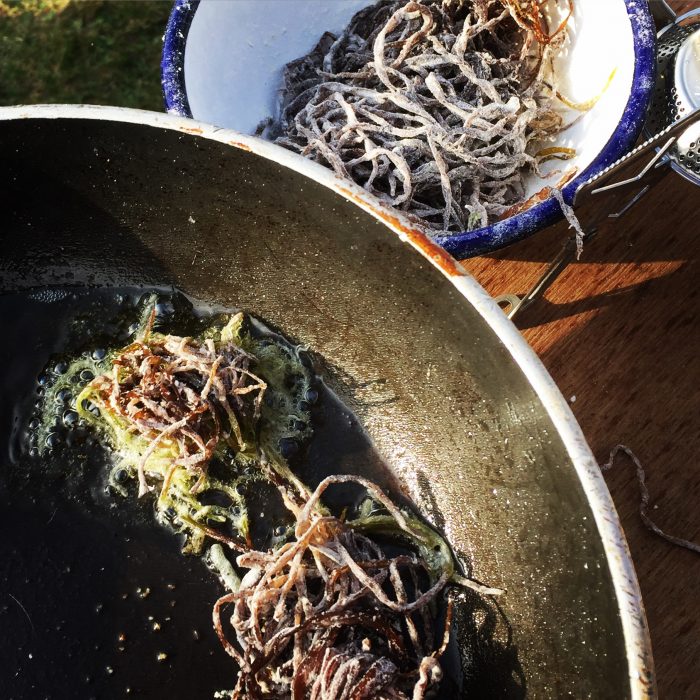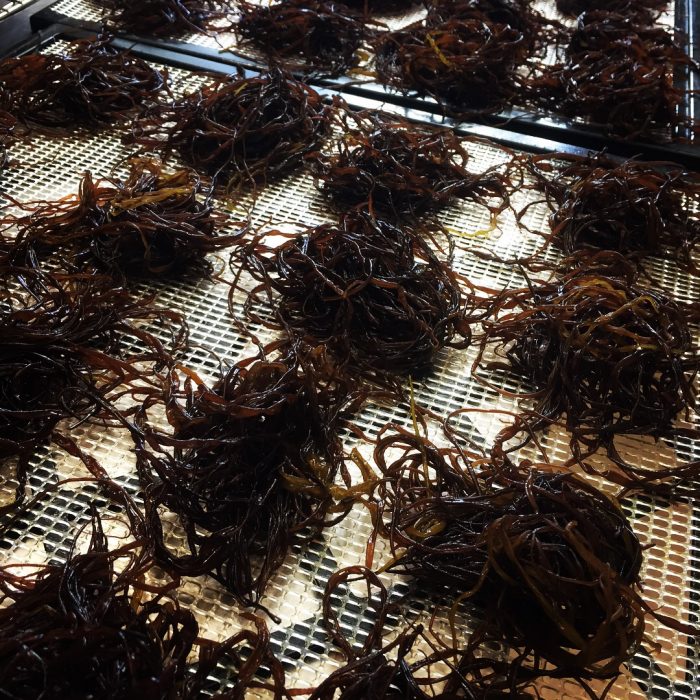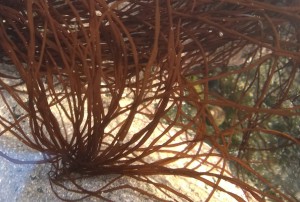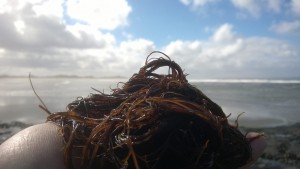Dumont’s Tubular Weed – Edibility, Identification, Distribution
Dumontia contorta
This is a wonderful seaweed that is quite easy to find in the right habitat. Its truly delicious, and occasionally even outshines pepper dulse on my seaweed gastronomy courses. I am indebted to my friend Monica Wilde for introducing me to its charms.
Habitat: In the bottom of rockpools and on relatively sheltered areas of rock in the mid tidal range. See my at-a-glance guide to tidal zonation of edible seaweeds:
Identification: Most easily identified when floating upright in rockpools when it looks like a straggly rosette of black/brownish (with a hint of red) noodles. Fronds are tubular, branching at irregular intervals, up to about 20cm long. Once you are tuned into it in this form, you’ll soon notice more of it flopping prostrately where it isn’t submerged. It is much browner, smaller and more fragile than sea spaghetti, and lacks the mushroom-like holdfast. Mermaid’s tresses (chorda filum) are green, much longer and occur in deeper water.
Edible Uses: Tasty and tender raw, straight from the sea, in salads, sushi etc. Toss them in soups, stews and broths at the last second as instant noodles. I use these as the base of my instant wild “pot noodles”. They are quite fragile, so break down quickly with extended cooking. Dust a plateful with flour then scrunch into “knots” before frying hot and quick, or tempura batter and deep fry. Either way, they make wonderful salty beer snacks! Dried and crumbled they make excellent seasoning.
Harvest: January – August: Tastes much nicer early in the season. Gather up the floating rosettes in your hand and cut off the tops, or, in this instance, pulling individual or small groups of fronds from their holdfast work well and leaves remaining fronds intact.
Related pages:
- Edible seaweed guide
- Introduction to foraging for seaweeds
- Recipe: Scottish dashi broth
- Recipe: How to make sushi with wild ingredients
- Wild Food Guide
- 10 wild foods in season now
